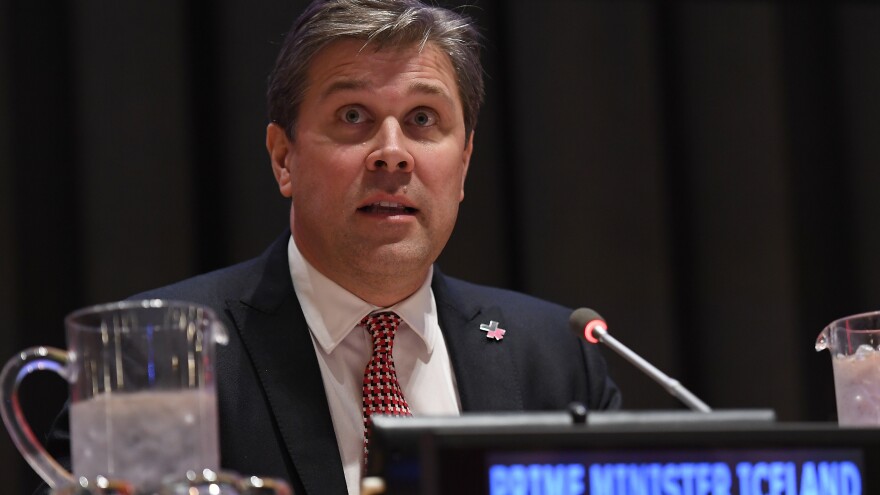"Gender equality benefits all of us," Iceland's Prime Minister Bjarni Benediktsson said on International Women's Day, as his government works on a law to require companies to show they pay men and women the same salary for the same work.
Benediktsson discussed the plan in New York, where he attended an International Women's Day summit and other meetings this week.
The law, which is believed to be the first of its kind at the national level, would apply to all companies with more than 25 employees, Benediktsson said. Companies would need to undergo certification every three years to ensure that their pay policies follow the rules.
"There is a standard which we have already taken up," he said, "but not all are following it."
In the U.S., attempts to close the wage gap have brought some success, but the gap remains wide: Last January, the Bureau of Labor Statistics said the most recent data showed women earning "83 percent of men's median weekly earnings."
Daily chart: The best and worst places to be a working woman https://t.co/9ekiO15kNz #InternationalWomensDay pic.twitter.com/1bthqg7mEN
— Laurent Donceel (@ldonceel) March 8, 2017
The state of Minnesota "has its own gender pay equity law and uses an outside consultant to help set wage levels," as NPR's Jennifer Ludden has reported.
Iceland plans to have its legislation in effect for 2020. The pay equity proposal is expected to have wide support in parliament — which is currently nearly equally divided between male and female lawmakers.
From the AP:
"Iceland has been ranked the best country in the world for gender equality by the World Economic Forum, but Icelandic women still earn, on average, 14 to 18 percent less than men.
"In October thousands of Icelandic women left work at 2:38 p.m. and demonstrated outside parliament to protest the gender pay gap. Women's rights groups calculate that after that time each day, women are working for free."
Discussing his country's work to achieve gender equity, Benediktsson said, "We may rank number one in the world at the moment, but the job is not done still."
While in New York, the Icelandic leader also decorated a cake with the theme message "He For She," which he then presented to Phumzile Mlambo, executive director of the U.N. Women agency. Mlambo called it proof that both men and women can bake cakes and lead a country.
On #WomensDay, Iceland PM @Bjarni_Ben breaks gender stereotypes by showing that both men & women can bake a cake & lead a country. #HeForShe pic.twitter.com/HdeBoHeUHG
— Phumzile Mlambo (@phumzileunwomen) March 9, 2017
Iceland is also pushing other European countries to close the wage gap — the country's Social Affairs and Equality Minister Thorsteinn Viglundsson called pay equity a matter of necessity Thursday, during a panel discussion on the topic in Brussels, where the European Union is based.
Iceland is one of several countries that have stepped up their contributions to groups that work on behalf of women's reproductive and sexual health, such as the U.N. Population Fund and She Decides.
Copyright 2021 NPR. To see more, visit https://www.npr.org.






